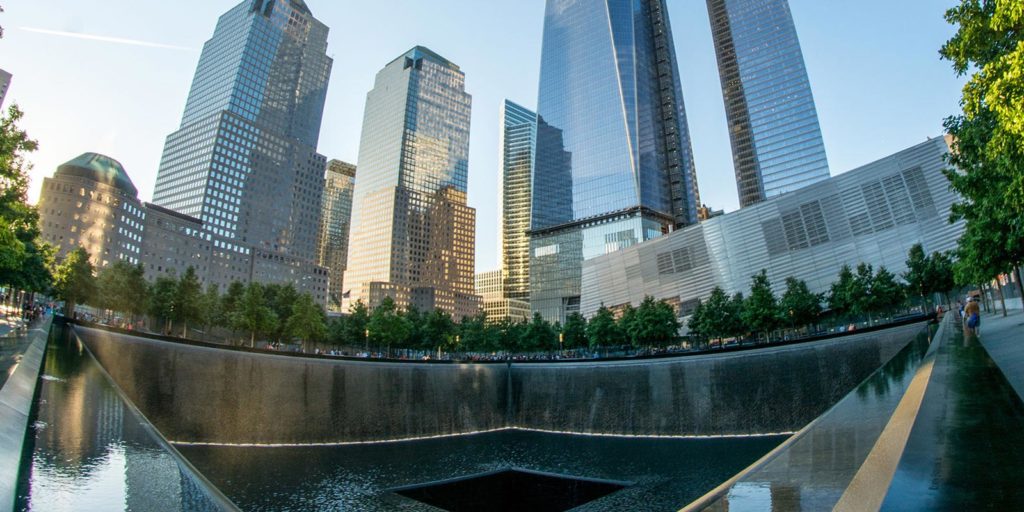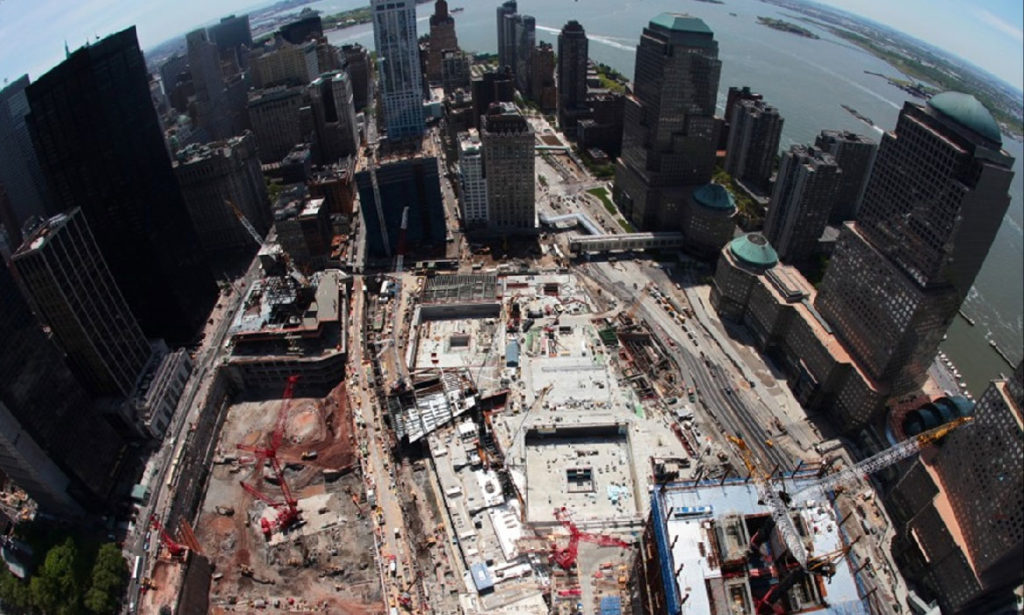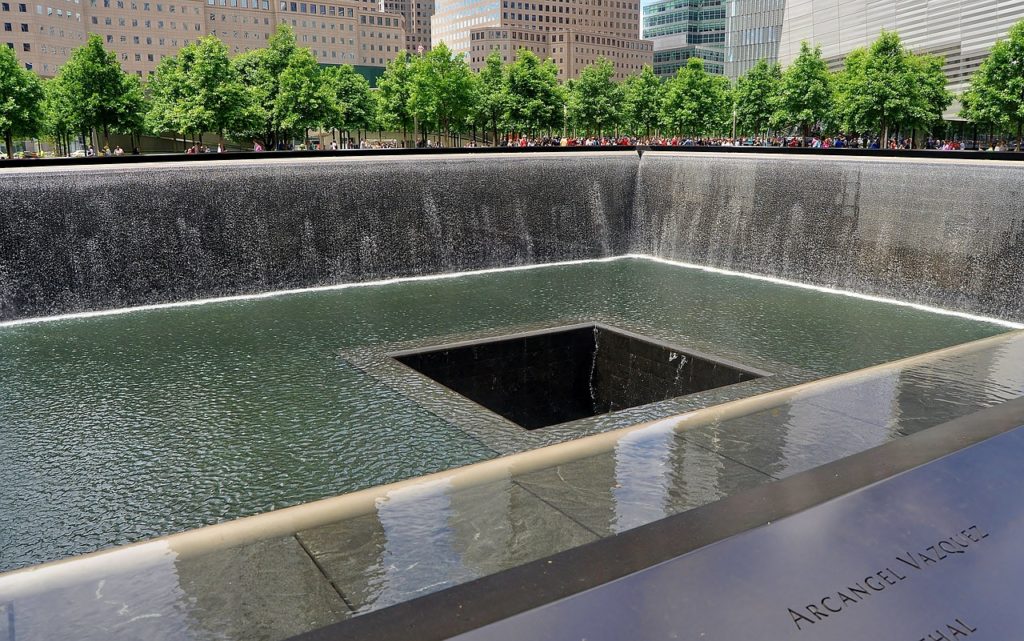Every now and then, Americans are reminded of the true meaning of Thanksgiving. For Guy Taylor, it began the morning of Sept. 11, as he sat at his desk at the New York Board of Trade at Four World Trade Center.
Every now and then, Americans are reminded of the true meaning of Thanksgiving. For Guy Taylor, it began the morning of Sept. 11, as he sat at his desk at the New York Board of Trade at Four World Trade Center.
Taylor heard a sound, which started as a loud hum and quickly grew in intensity. Soon “it sounded like a jet plane was coming down the hall,” said the Clarksdale, Miss., native and current director of public relations for NYBOT.
Moments later a thunderous explosion literally rippled the skin on Taylor’s arms. Taylor, a bachelor whose parents own farmland around Clarksdale, rushed to the window facing Church Street.
“It looked like it was snowing,” Taylor said of the millions of pieces of paper and debris descending upon the street.
Taylor’s first thoughts were that a jetliner had strayed off course or that terrorists had launched a missile from a boat in New York Harbor.

He did know that whatever happened was close, scant feet from NYBOT facilities, which house several commodity exchanges (including the New York Cotton Exchange). Within moments of the blast, Mark Fichtel, NYBOT president, ran from office to office telling everyone in no uncertain terms, “Get out of the building!”
Taylor obliged, leaving behind his cell phone, laptop computer, a blue suit coat and perhaps a more innocent view of life. He headed toward the stairs for the eight-story descent to the street.
At the ground floor, the building’s security force had formed a human barricade in front of all exit doors. “I think they were afraid something was going to fall on us if we went outside,” Taylor said.
But the security officers’ precaution soon gave way to reason and the resolve of the crowd as Taylor and others quickly shuffled through the revolving doors to the street.
Taylor didn’t turn around to measure the carnage at the World Trade Center (and did not want to speak of the terrible things that others saw there). He just ran, thinking any missile might have contained deadly nerve gas or another chemical agent.
As Taylor scrambled across Church Street, he instinctively grabbed a piece of paper floating by. It was a news release from a public relations office in the doomed tower, probably written by someone who held a job similar to his. He saved it.
He ran past a bus that had crashed into a lamp pole on Church Street and a taxi cab abandoned in the middle of the street with its doors open and windows blown out.
Clear of the blast site, Taylor’s first thought was to let loved ones know he was alive, but the lines were six-deep at pay telephones. When he saw a group of businessmen collecting their breaths on a street corner, he asked to borrow a cell phone. Taylor called everyone he could as news media helicopters gathered overhead.
Taylor’s dismay deepened when he learned that two hijacked jet planes had been flown into the twin towers at the WTC and suspected that more attacks may be imminent. He was surprised to see a lone taxi in the street, fully operational and waiting for a fare. “I got in and told him to head north, but to avoid the Empire State Building and the United Nations.”

He arrived home safely, but nonetheless stunned at how an ordinary Manhattan morning had turned so deadly, so quickly and so close to home.
Taylor also knew that his life’s priorities had changed. “I realized how important my family and God were to me,” he said.
Taylor and the nearly 2,000 other NYBOT employees had little time to grieve for friends and colleagues lost in the attack. Millions of people, as well as a number of competing exchanges, were waiting to see how NYBOT, which handles $300 billion in total contract value annually, would respond to the calamity. Most were hoping for the best, a handful undoubtedly wishing for the worst.
So Taylor and his co-workers dealt with the tragedy the only way they knew — they went back to work.
“We had a three-phase plan,” Taylor said. “One, we wanted to get into our backup facility in Long Island City, Queens, and get it operational as quickly as possible.”
Some staffers wasted no time at all. “People who barely escaped the WTC with their lives went directly to the backup facility in Queens and started setting up because they knew that’s what they needed to do.”
By then, it was obvious that the NYBOT facility at the WTC had been severely damaged by the collapsing towers. In fact, the facade of the building was all that was standing. Later, a demolition ball brought it down.
Unknown to most people at the time, $650 million in gold and silver was being kept in a special vault four floors beneath Four World Trade Center. The gold and silver were recently recovered.
Over the next few days, Taylor and Fichtel appeared on numerous television shows and radio programs, talking about the exchange’s efforts to resume normal operations.
“We probably could have been up and running by Thursday (Sept. 13),” said Charles Falk, NYBOT chairman. “But there were problems with some of our clearing members.”
Instead, NYBOT waited and held a mock trading session at the new facility on Saturday, Sept. 15, to work out any kinks.
“We really didn’t have a lot of time to try to trade,” Taylor said of the mock session. “It was more of an orientation. It was very emotional for everybody. It was the first time we had seen each other since the attack. I saw a lot of guys hugging.”

Taylor said that the new phone system in the facility was not quite able to handle the volume of calls that morning which “crashed the system.”
“We called Mayor Giuliani and he had an army transport plane from Texas bring in a new switch,” Taylor said.
The first day of real trading commenced on Monday, Sept. 17. A month later, futures and options trading at the new facility had reached seasonally normal and even higher levels, according to Taylor.
The cost of moving into the new space was estimated at $2.5 million to $3 million.
In phase two, NYBOT plans to expand the dimensions of the current building, which is one-fourth the size of the WTC facility, and return to more-normal operating hours. The WTC facility had 13 pits that supported four- to five-hour daily trading schedules. Each commodity at the backup facility currently trades on two pits for one and a half hours a day.
That expansion is now under way.
The last phase is for NYBOT to move into a permanent facility as soon as possible. And there is good reason. NYBOT reports that at least one foreign exchange has indicated that it will try to take advantage of the current emergency by attempting to transfer NYBOT’s role as world price-setter in coffee, sugar, cocoa, cotton and orange juice to its own financial center.
NYBOT estimates the cost of a new facility, plus the cost of expanding the backup facility, at around $142 million. While NYBOT had insurance for certain elements of the loss at WTC, the policy does not come close to covering the full cost of establishing a new permanent facility and of outfitting temporary facilities.
Taylor noted that NYBOT is seeking financial assistance from local, state and federal governments as it rebuilds.
By November, the terror of Sept. 11 had still not subsided for Taylor, who says he has had very little rest. “Things aren’t the same anymore, not just for me, but for the country.”
And the anthrax scare, especially since exposures have been reported in New York, “is keeping everyone on edge. Our mail is scanned and the guy who delivers mail wears gloves and a mask and is prepared on what to keep an eye out for.”
Taylor planned a family reunion in October with his parents, Walter and Word, who have homes in both Oxford, Miss., and Gulfport, Miss., sister Missie and brothers Will, Buddy and Clint.
The family also planned to be together this Thanksgiving. Certainly, the gathering will have special meaning.
“Our family has been through a lot recently,” he said. “It’s tough to hear my family members explain their feelings, that they were trying to deal with the fact that I might be gone.”
What’s he going to do when he sees his family for the first time since Sept. 11? “I’m going to be overwhelmed by the sense of gratitude and thankfulness,” he said. “But I’m not really sure how it’s going to hit me. I think it’s going to sweep me away.”
